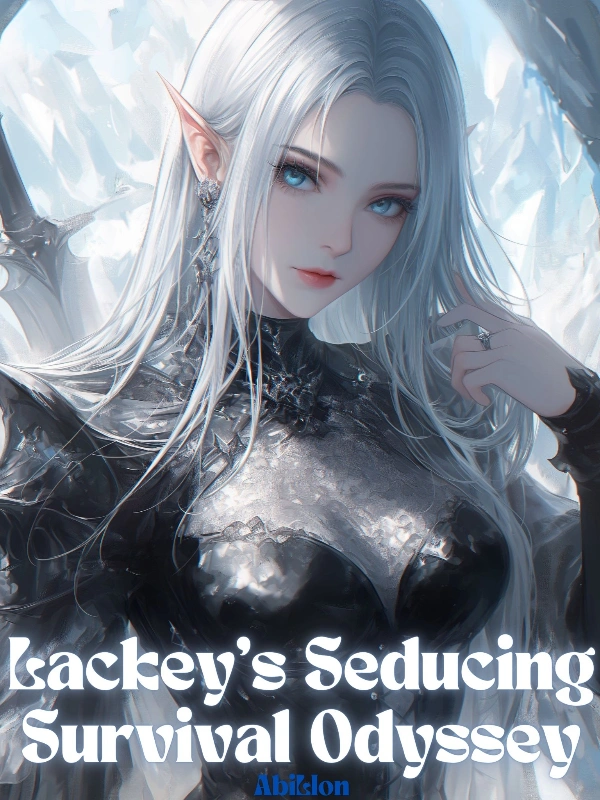Chapter 55: The Oath of Loyalty (2)
Translated by Vine | Proofread by Lust
For the latest updates, visit: ProNovels.com
Join our Discord for release updates: https://discord.gg/Eh2ayfR4FB
< German Civil War – The Oath of Loyalty (2) >
October 10, 1939
Northern Germany, Potsdam, a City Southwest of Berlin, Local Tavern
Adolf Galland and Werner Mölders, rising stars of the Luftwaffe and a renowned captain duo, sighed, nursing their beers.
Their respected superior, Major General Wolfram von Richthofen, despite his low alcohol tolerance, enjoyed drinking and often joined them.
Which would have been fine, except…
“Schacht, that scoundrel! After all I did for him!”
Richthofen, completely drunk, was shouting at the top of his lungs.
“Hey, Mölders, shouldn’t we stop him from drinking any more?”
“Are *you* going to stop him?”
Galland shook his head at Mölders’s question. They exchanged glances, clinked their glasses together, and took a sip.
The cool beer was refreshing, but their expressions remained uneasy.
Most Luftwaffe generals were either transfers from the army, desk jockeys whom frontline pilots like them rarely saw, or, like Göring, consumed by greed and vanity, making them difficult to admire.
Thus, the two held Richthofen, with whom they had served in the Condor Legion during the Spanish Civil War, in high regard. However, even they struggled to maintain that respect while he was behaving like a heartbroken lover.
“I thought he would be a valuable connection in the army, but he turned out to be a rebel sympathizer?! How could he be so ungrateful?! Huh?! Galland! Say something!”
“Is that so…”
Galland gave a noncommittal answer, and Mölders smiled wryly at him. Adolf Galland was a secret listener of New Government radio broadcasts and was disillusioned with the Nazi regime.
He was a chivalrous and honorable soldier, and the atrocities committed by the Nazis, revealed by the New Government during the civil war, had shattered his loyalty.
Werner Mölders, a former subordinate and now a close friend, was aware of Galland’s sentiments but remained silent.
“I never thought I’d see the day when Reichsmarschall Göring would question *my* loyalty! After all my service to the Luftwaffe and the regime! He’s so uncaring!”
Like Walther Model, who had recommended Dietrich Schacht, Richthofen, who had taken Schacht under his wing in Spain, praised him, and often drank with him, had also fallen under suspicion.
While Göring’s protection had spared him from arrest, he was deeply offended by the suspicion cast upon him, after his dedicated service to the development of the Luftwaffe since its inception.
“Sir, frankly, I question whether this regime deserves a soldier’s loyalty.”
Richthofen turned his gaze to Galland, who had dared to speak so boldly.
“Ahem, Galland, are you drunk? Sir, I think he’s had too much to drink. I apologize on his behalf.”
Mölders tried to smooth things over, but Richthofen, his face flushed, stared at Galland and spoke.
“Why? Do you no longer wish to be loyal because the regime’s opponents are suffering and dying in concentration camps, and they sold out Austria?”
Galland’s face hardened at Richthofen’s words, but he nodded without hesitation.
“Yes. Shouldn’t a nation that demands a soldier’s loyalty demonstrate that it is worthy of that loyalty, a nation worth fighting for without regret?”
Richthofen sighed. He had listened to the New Government radio broadcasts himself.
How could he not, when the man he had recommended and befriended was the spokesperson?
“Galland, I value you highly, so I’ll pretend I didn’t hear that. I am indebted to Reichsmarschall Göring, and you are indebted to me, are you not? I won’t demand absolute loyalty to the government. Trust and follow me.”
Enjoying the translation? Stay updated with the latest chapters at ProNovels.com.
“Yes, sir. My apologies, sir.”
Richthofen smiled at the relieved Mölders and the somber-faced Galland, but he felt a pang of bitterness.
It wasn’t the Nazi atrocities themselves that disturbed him.
He was a man who wouldn’t hesitate to incinerate civilians with incendiary bombs and would gladly become the enemy’s demon for his country.
However, attacking one’s own civilians to start a war and committing atrocities against the very people he was supposed to protect was a different matter.
Were they truly fighting for their country? Richthofen, feeling a headache coming on, gulped down his beer.
“Sigh. A debt of gratitude must be repaid. That’s all.”
While Reichsmarschall Göring had lost some of his former sharpness and charisma, Richthofen considered him his mentor, the man who had propelled him to his current rank.
Serving under his benefactor, defending his country, annihilating the enemy, rising through the ranks, and enjoying the spoils of his achievements. As a soldier, it was a simple and straightforward path, requiring no further thought.
“Schacht, that bastard. I’ll give him a good thrashing when I see him again.”
That ungrateful wretch. After all he had done for him.
Despite his words, he had spent a considerable amount of time with Dietrich Schacht.
He knew that Schacht wasn’t the type to incite rebellion and spread false propaganda without reason. The truth he had learned through the New Government radio broadcasts was shaking his convictions.
Richthofen had viewed Hitler as a strong leader who would restore Germany to its former glory after the Great War. He had proudly proclaimed the Führer as a great leader.
He had said the same to Schacht. But could he still say it with conviction if asked again?
Did he truly believe what he had told his subordinates to follow?
–
October 10, 1939
Central Germany, 9th Military District, Kassel, Frankfurt, New Government Headquarters
“Ah, suddenly…”
Was someone talking about me? Honestly, there were too many possibilities.
I scratched my suddenly itchy ear and continued walking, my eyes glued to the stack of documents in my hands.
It was late at night, but the New Government headquarters was brightly lit, like a modern Korean city. While many were exhausted, a newly formed government had much to do.
“Welcome, State Secretary.”
Minister of Defense Ludwig Beck greeted me with a weary expression.
“My apologies for being late. I was delayed in the Ruhr.”
I had just returned from inspecting the production of military equipment, particularly armored vehicles, in the Ruhr.
While I was officially the State Secretary, I couldn’t possibly interfere with my father’s domain of domestic affairs and economics. I focused on propaganda and military matters, areas where my father lacked expertise.
“Ah, I see. How are things progressing?”
The Wehrmacht forces remaining with the Nazis had been the main force intended for the invasion of Poland, so naturally, they were far better equipped than the New Government forces, which were centered around Army Group C, a force primarily intended to buy time on the French border.
While we were still using early-model light tanks like the Panzer I and II, they possessed Panzer III and IV medium tanks and even superior Czech-made light tanks.
However, with the Ruhr and the ball bearing factory under our control, replenishing their armored forces was practically impossible.
With the New Government gaining stability, we had begun producing proper tanks to address the disparity in armored strength, moving beyond the Panzer I and II.
“Production of the Panzer IV is progressing smoothly. However, the Panzer III is proving problematic, both in terms of production and defects.”
Thanks to Model assigning me to Guderian’s lectures and transferring me to the armored branch, I had gained knowledge I hadn’t even known existed in the modern era.
But something felt off. From what I knew, the Panzer III was supposed to be the main battle tank, and the Panzer IV the support tank.
Why was the Panzer IV superior in anti-tank capabilities, production numbers, and even reliability? The famous German tanks of World War II, the Tiger and Panther, were still far off in the future.
“That damned Panzer III has always been troublesome.”
If it was meant to be a main battle tank, it should be capable of engaging enemy tanks. But with the more powerful Panzer IV already outnumbering it, and with *that* being our enemy’s main tank, the Panzer III felt incredibly awkward.
“Why not standardize on the Panzer IV?”
Was there a need to distinguish between main battle tanks and support tanks? Wouldn’t it be more efficient to mass-produce a single type, like the Soviet T-34?
“We’ve already produced a large number of Panzer III chassis, intending to make it the main battle tank. We can’t just scrap them.”
“Then just skip the turret and make them into assault guns. The turret weight is causing problems with the suspension, wouldn’t that solve the issue?”
“Hmm.”
Assault guns were essentially tank chassis with the turret replaced by a fixed gun.
While limited by their inability to rotate the gun, they were cheaper and faster to produce, allowing for larger deployments, and they could mount bigger guns than turrets could accommodate.
If the Panzer III was going to be ineffective as a tank, why not mass-produce it as something else?
“If we are concerned about tank-on-tank combat with only the Panzer IV, we could also develop a variant equipped with an anti-tank gun.”
The concept of a tank destroyer didn’t seem to exist yet. Was this what a tank destroyer was?
In any case, this would utilize the surplus Panzer III chassis and eliminate the need for turrets, addressing the production issues.
“So you’re suggesting we standardize on the Panzer IV as the main battle tank and use the problematic Panzer III chassis for assault guns and anti-tank guns?”
“Yes, Minister. I believe reducing the number of variants and focusing on consistent production will improve efficiency.”
While I wasn’t a military expert, I knew that Germany’s inefficient wartime production during World War II was partly due to producing a plethora of different variants.
While the situation in Nazi Germany was hopeless due to the intertwined corruption between the Nazi Party and businesses, only slightly improving under Albert Speer, who enjoyed Hitler’s favor, we were relatively free from such issues.
Furthermore, we were receiving Lee-Enfield rifles from Britain, who were quite pleased with our recent negotiations, allowing us to focus more on armored warfare.
“Hmm, I’ll discuss this with General Lutz.”
“Thank you for considering my suggestion.”
Despite my title of State Secretary, I was only in my twenties and held the rank of major, yet Ludwig Beck treated me with respect.
Knowing that the Wehrmacht often disregarded even Hitler’s direct orders, I was quite grateful for his consideration.
“Here is the report, Minister. If there is nothing else, I’ll take my leave.”
I placed the report on his desk and spoke to Ludwig Beck. He was silent for a moment, then spoke.
“Do you resent me?”
While Ludwig Beck hadn’t been directly involved in planning the Military Junta’s coup, he had succumbed to them after the radio broadcasting station and the government headquarters were seized.
He had even gone on the radio, announcing Wilhelm III’s ascension as Emperor in his capacity as Regent of the New Government and urging the public to support the Military Junta.
This had happened after the Frankfurter Zeitung articles had been distributed at my request, and Operation Freiheit was already underway, so it hadn’t significantly altered the course of events. However, the stain of the New Government’s leader surrendering to the coup plotters remained.
It had been a close call. If Colonel Tresckow hadn’t helped me escape…
Or if, even after escaping, I hadn’t been able to distribute the newspapers quickly and leave Frankfurt thanks to Claudia’s help, the New Government’s fate would have been uncertain.
“Was it solely your fault, Minister? I, and the others in the New Government, also bear responsibility for its temporary incapacitation.”
While I had prepared countermeasures after Tresckow’s warning, I hadn’t anticipated the monarchists’ bold move, so I was partly to blame.
“I see…”
After the Military Junta’s suppression, Wilhelm III and my father had intended to remove Ludwig Beck from power.
However, the military had opposed it, and I had personally persuaded the Emperor and my father to allow him to retain his position as Minister of Defense.
While his influence within the military was necessary, there was another reason.
“It was you, Minister, who authorized my activities, which were unpopular with the monarchists involved in Operation Widerstand, and appointed me as spokesperson.”
While Admiral Canaris of the Abwehr had consistently supported me since the Munich Agreement, I wouldn’t be in my current position if Beck, the head of the New Government, hadn’t granted my requests.
“I am not ungrateful, Minister.”
“Is that so?”
Beck smiled, his expression a mix of relief and something else.
“Thank you. You may go.”
“Yes, sir. I’ll take my leave.”
There were things I couldn’t say to him. In the original timeline, he had been the leader of the Black Orchestra and had committed suicide after Stauffenberg’s failed plot.
While their beliefs might have been outdated and foolish, I wanted to respect those who had risked everything to oppose Hitler.
The fact that they were alive and well, despite their tragic fate in the original timeline, was proof of the value of my actions.
However, those who truly weighed on my conscience were still in Nazi territory.
The thought that I might have been able to persuade them haunted me.
How did they perceive me and the New Government now? My actions, launching the coup without informing them, could be considered a betrayal.
I was worried that I might have inadvertently placed them in a difficult situation.
Model, Richthofen, Michael, Clemens.
My mentor, colleagues, friends.
Were they still loyal to the Führer and the Nazis?
Did they hate me?
I hoped not, but even if they did, I had to accept it.
I had used propaganda to avoid escalating the civil war as much as possible.
However, the final confrontation with the Nazis was imminent, and Hitler and the Nazis would never surrender peacefully.
Bloodshed was inevitable to end the civil war.
While it was necessary to prevent the Holocaust and Germany’s devastating defeat in World War II, this alteration of history could lead to the deaths of those who had survived in the original timeline.
Perhaps those I cared about would fall while opposing us.
I was prepared, but the weight of altering history pressed heavily on my shoulders.
I could only hope that the sacrifices would be minimal.
< German Civil War – The Oath of Loyalty (2) > End
ⓒ Carcassonne
For the latest updates, visit ProNovels.com. Join our Discord for release updates: https://discord.gg/Eh2ayfR4FB.



















